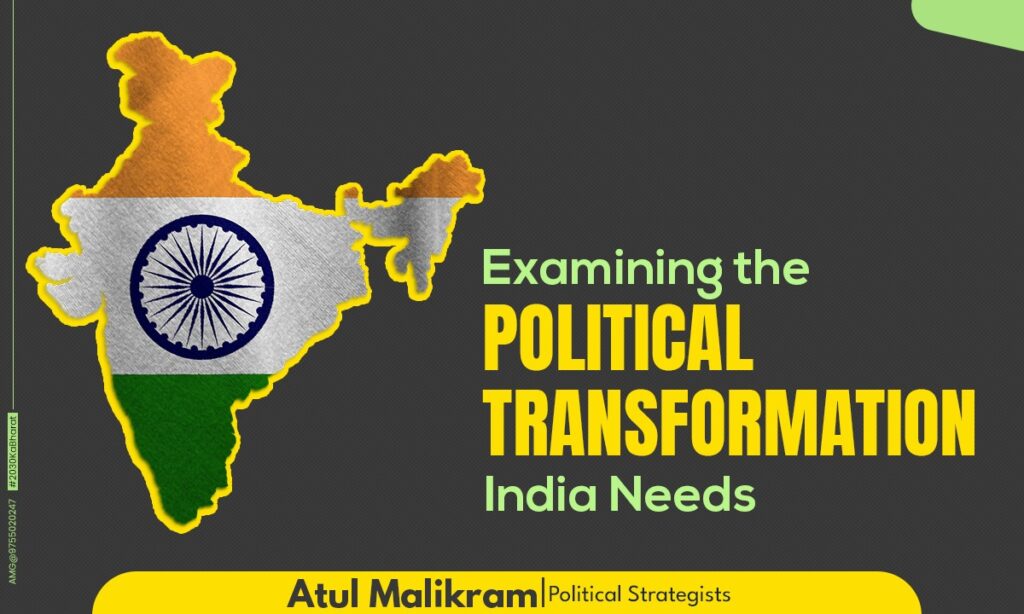India, the world’s largest democracy, stands at a crucial juncture in its political history. As the nation grapples with a multitude of challenges and aspirations, it is imperative to examine the political transformation India needs. Central to this transformation is the active engagement of the youth in politics, a subject that warrants a closer look. In this article, we will explore the role of youth in Indian democracy, the challenges they face in Indian politics, and the significance of their political engagement.
Youth Politics: The Engine of Change
The youth of India, often referred to as the demographic dividend, represent a substantial portion of the country’s population. Their energy, enthusiasm, and fresh perspectives can be a driving force for political transformation. The role of youth in Indian democracy is not just limited to casting their votes; it extends to shaping the future of the nation. It is a well-established fact that when young people actively engage in politics, they can bring about significant and positive change.
Challenges Faced by Youth in Indian Politics
While the youth have the potential to be catalysts for transformation, they also face several challenges in the Indian political landscape. One of the most significant hurdles is the prevalence of traditional politics, which often relies on established networks, wealth, and family connections. This makes it difficult for young, aspiring politicians to enter the political arena on a level playing field.
Moreover, the influence of money and muscle power in politics poses a serious challenge to youth political engagement. It discourages idealistic and principled youth from participating, as they find it hard to navigate the murky waters of electoral politics.
Another significant challenge is the lack of awareness and education about the political process, which hampers the youth’s ability to understand their rights, responsibilities, and the intricacies of governance. However, this challenge can be addressed through increased civic education and awareness campaigns.
The Role of Youth in Indian Democracy
The role of youth in Indian democracy is not just about becoming politicians; it’s also about becoming active citizens who hold their elected representatives accountable. The youth have shown their potential in various social and political movements, like the anti-corruption movement led by Anna Hazare and the climate activism of Greta Thunberg. These examples illustrate how youth can be powerful agents of change by demanding transparency, accountability, and responsiveness from the government.
Youth Political Engagement: The Way Forward
To address the challenges faced by youth in Indian politics and realize their potential, a multi-pronged approach is necessary. First and foremost, political parties and leaders should recognize the value of youth participation and actively encourage their involvement. Parties should provide more opportunities for young leaders to contest elections and take up leadership roles.
Civic education should be integrated into the school curriculum to ensure that young people are well-informed about the political process from an early age. Additionally, civil society organizations and NGOs can play a crucial role in conducting awareness campaigns and providing training to the youth, equipping them with the necessary skills to navigate politics effectively.
Furthermore, digital technology and social media can be harnessed to engage young voters and activists, making it easier for them to connect, organize, and raise their voices on important issues.
As India stands on the cusp of political transformation, the role of youth in Indian democracy cannot be overstated. The challenges faced by the youth in Indian politics are real, but they are not insurmountable. With the right policies, education, and opportunities, the youth can be the driving force behind the political transformation India needs. Their active political engagement will not only invigorate Indian democracy but also steer the nation toward a more inclusive, progressive, and responsive future. It’s time to recognize the youth as the engine of change that can lead India into a brighter and more promising tomorrow.

